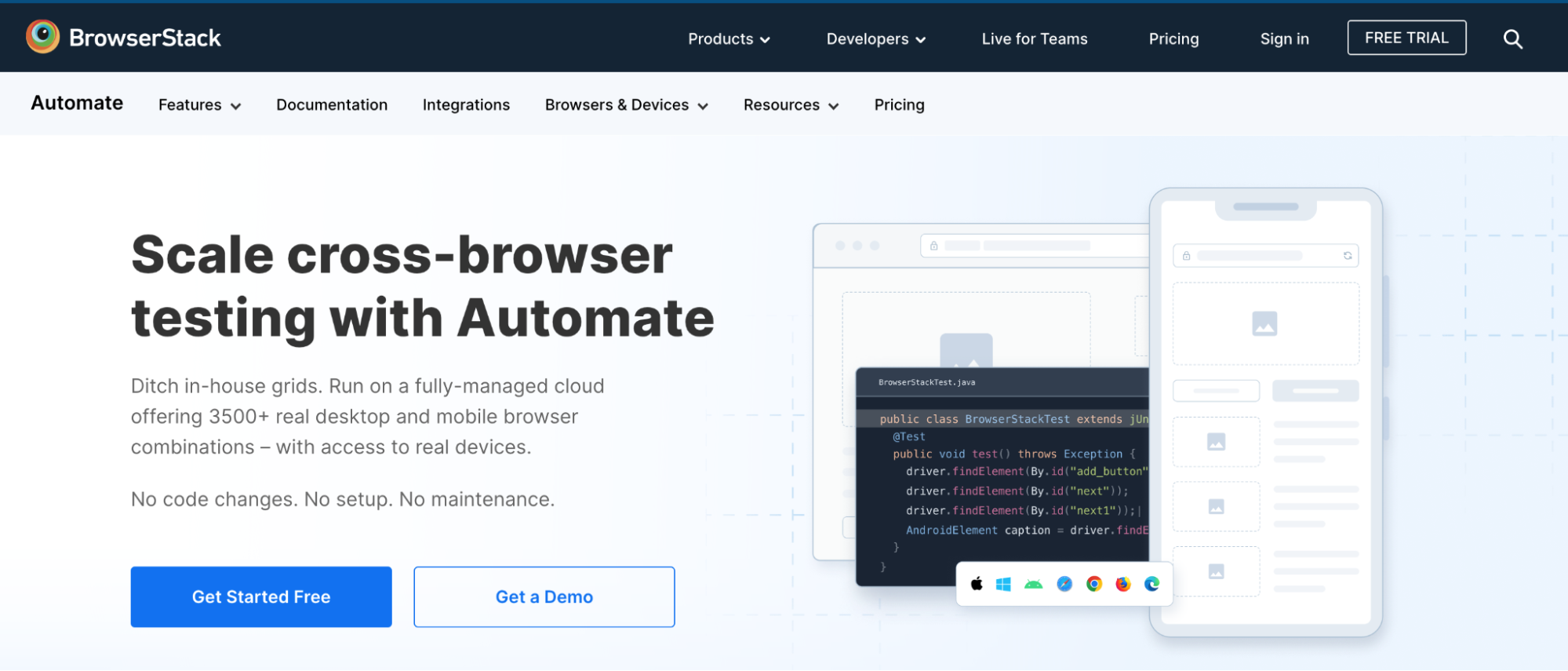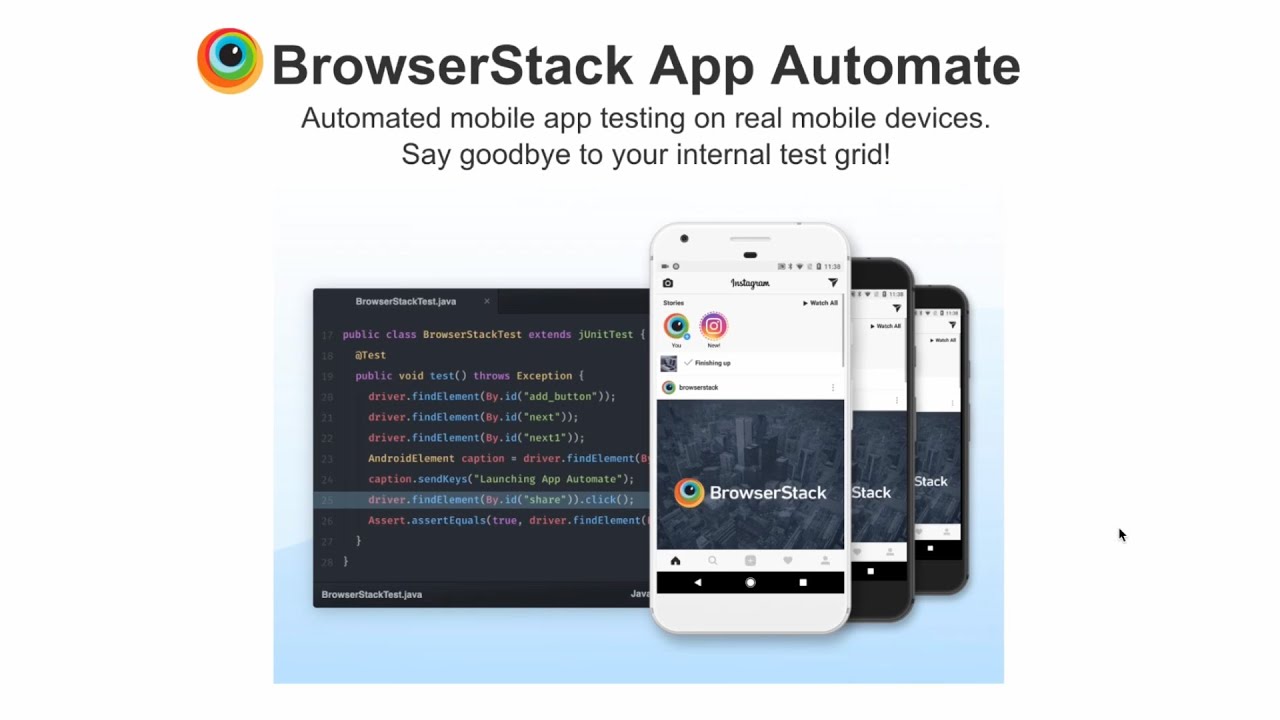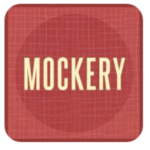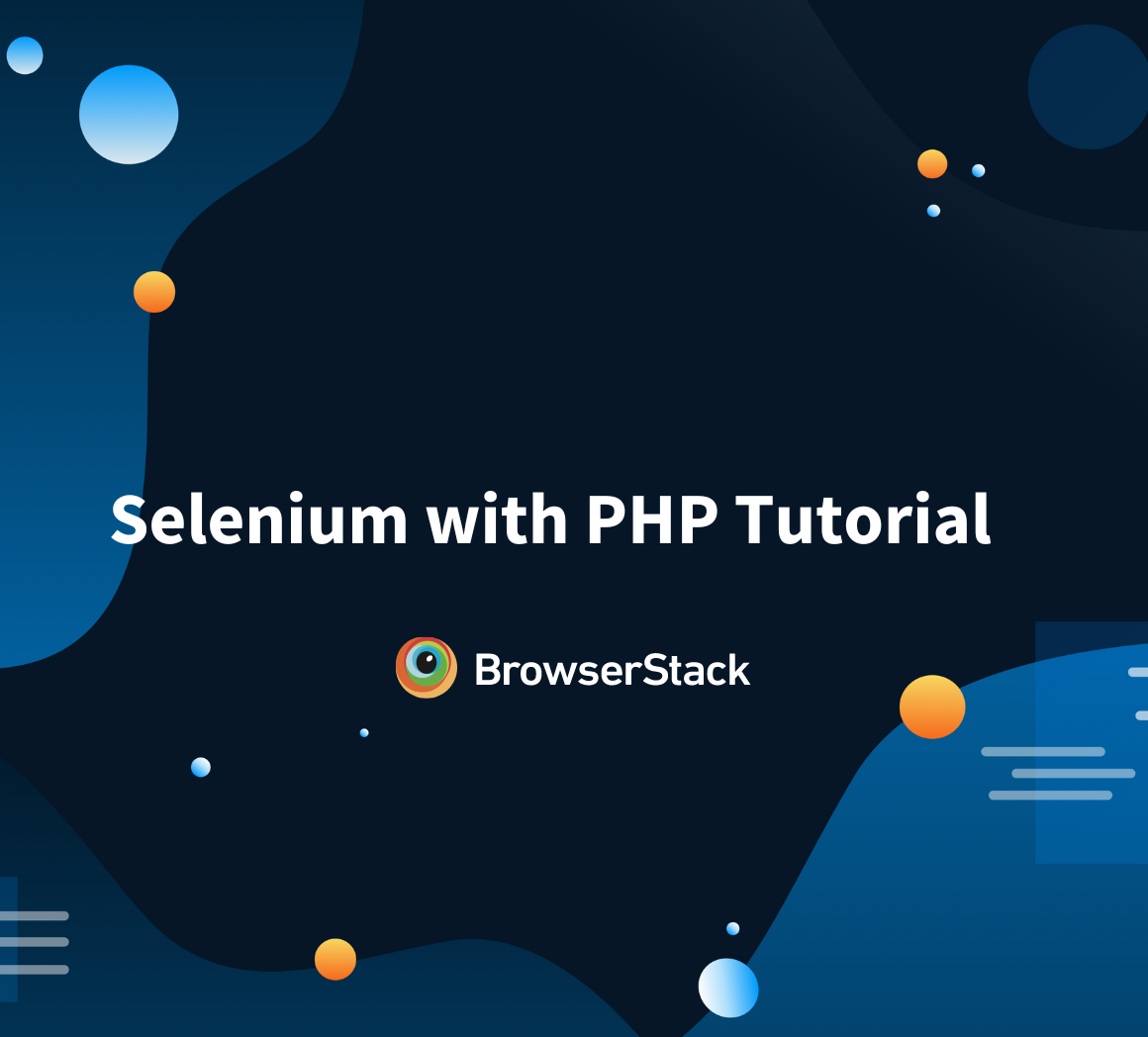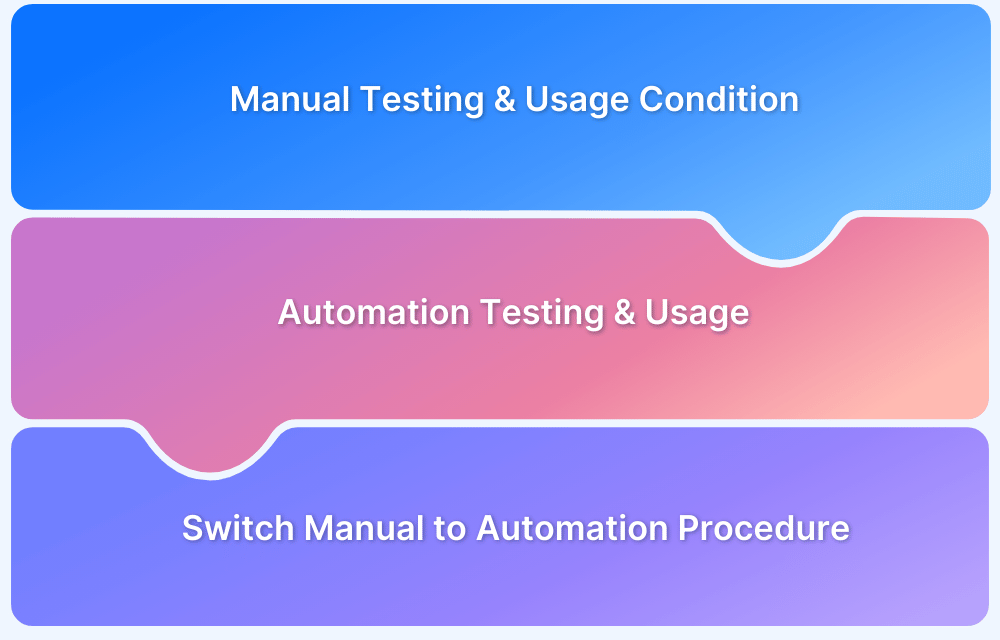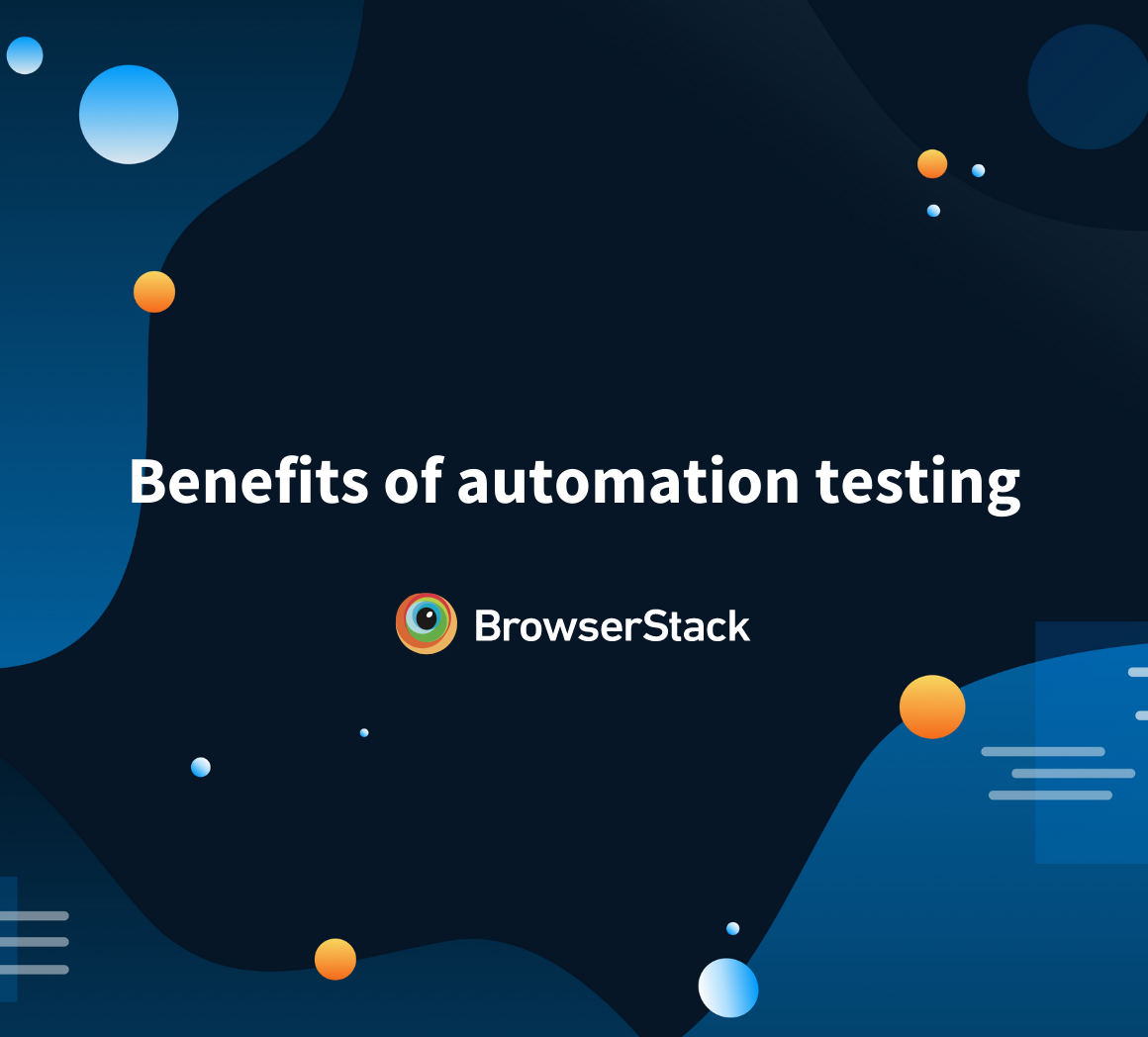Popular PHP Software Testing Tools
By Manish Saini, Community Contributor - September 3, 2024
PHP remains a cornerstone of web development, powering significant portions of the web. Given its widespread use, robust testing frameworks and tools are essential to ensure that PHP applications are secure, performant, and reliable.
This guide explores popular testing tools for PHP-based applications.
- What is a PHP Software Testing Tool?
- 10 Popular PHP Software Testing Tools & Frameworks
- 1. BrowserStack Automate & App Automate
- 2. Selenium
- 3. StoryPlayer
- 4. Behat
- 5. PHPUnit
- 6. SimpleTest
- 7. Atoum
- 8. Mockery
- 9. Guzzle
- 10. Codeception
- 11. PHPStan
What is a PHP Software Testing Tool?
PHP software testing tools streamline the process of checking PHP-based applications. These tools automate tests to catch bugs, verify functionality, and enhance software quality, helping developers deliver the best user experience.
Effective testing is key to application success. It reduces bugs, speeds up development cycles, and ensures software behaves as expected across different environments. Given PHP’s dynamic nature and extensive use in interactive applications, automated PHP testing tools are especially critical.
Read More: PHP for Web Development
10 Popular PHP Software Testing Tools & Frameworks
1. BrowserStack Automate & App Automate
BrowserStack Automate and App Automate are leading cloud-based platforms for the automated testing of websites and mobile apps. They support several test automation frameworks and languages, including PHP, providing a robust solution for cross-browser and cross-platform testing.
With access to a Selenium grid on the cloud, real devices, and seamless CI/CD integrations, BrowserStack makes it easy to run parallel tests, ensuring your PHP applications perform flawlessly across all environments.
Key Features
- Extensive Device and Browser Range: Access to over 3500+ real devices and browsers ensures your PHP applications work seamlessly on any platform.
- Parallel Testing: Speed up your test suite significantly by running tests in parallel.
- No Setup or Maintenance: Eliminate the overhead of maintaining testing grids and environments.
- Network Simulation Support: Test for scenarios like connectivity, fluctuating networks & many more.
Final Thoughts:
BrowserStack is a powerhouse for developers who aim to excel in cross-browser and cross-device testing. It offers unparalleled support for PHP and beyond. Its comprehensive toolset, coupled with a real device cloud, offers an unmatched testing environment that is hard to replicate in-house.
Their seamless integration with CI/CD pipelines and ease of use make them invaluable tools for any development team aiming to deliver flawless applications quickly and efficiently.
2. Selenium
Selenium is a robust framework for web application testing across various browsers and platforms. Its support for multiple programming languages, including PHP, makes it a versatile choice for many developers. It integrates seamlessly into CI/CD pipelines.
Key Features
- Multi-Browser Support: Test across all major web browsers.
- Multi-Language Compatibility: Write your tests in PHP, Java, Python, and more.
- Strong Community Support: Benefit from a wide range of community-driven plugins and robust documentation.
Final Thoughts:
Selenium’s ability to effectively automate browsers makes it a cornerstone tool in web testing. Its flexibility and broad adoption make integrating into any workflow straightforward. However, handling dynamic elements can be tricky, and the absence of real mobile device testing might limit those needing extensive mobile testing capabilities.
3. StoryPlayer
StoryPlayer is a comprehensive full-stack testing tool designed for PHP developers who want to integrate testing seamlessly into their projects. It allows you to write, manage, and execute tests directly within your PHP codebase, offering a unified approach to testing both backend and frontend components.
Key Features
- End-to-End Testing: From API to browser testing, handle all layers of your application.
- Environment Management: Test in multiple environments with the same test scripts.
Final Thoughts:
StoryPlayer is a strong contender for PHP developers looking for a robust testing framework that seamlessly manages both front-end and back-end testing. It provides deep integration into PHP environments, which enhances test reliability and developer workflow. However it is no longer maintained and may require extra efforts to build new features.
4. Behat
Behat is a testing framework centered around Behavior-Driven Development (BDD), enabling teams to write tests in a human-readable language. This approach connects the gap between technical and non-technical stakeholders, ensuring everyone, from developers to business analysts, can understand and contribute to the testing process.
Key Features
- Human-readable: Write tests that are easy for anyone on your team to understand.
- Integration Friendly: Works well with other PHP testing frameworks like PHPUnit.
Final Thoughts:
Behat facilitates communication between developers, testers, and business personnel, making it a favorite for projects where clarity and behavior testing are key. While its focus is not on performance testing, its collaborative approach can significantly enhance software quality.
5. PHPUnit
PHPUnit is the gold standard for unit testing in PHP. It offers a flexible framework that allows developers to write detailed and comprehensive test cases. Its extensibility makes it suitable for both simple and complex testing needs, from basic unit tests to advanced integration scenarios.
Key Features
- Code Coverage Reports: Generate detailed reports on which parts of your code are being tested.
- Data-driven Testing: Easily create tests with various input sets to ensure broad coverage.
Final Thoughts:
PHPUnit is indispensable for PHP developers who focus on reliability and thorough testing. It provides detailed insights into code performance and vulnerabilities, though it requires a good understanding of test principles to fully utilize.
6. SimpleTest
SimpleTest is a straightforward and accessible testing framework that caters to both unit and web testing, making it an excellent choice for those who prefer simplicity. With minimal setup, developers can quickly implement and run tests without the complexity often associated with more robust frameworks.
Key Features
- Ease of Use: SimpleTest lives up to its name, being easy to learn and implement.
- Web Testing Capabilities: Directly test web applications alongside unit tests.
Final Thoughts:
Ideal for smaller projects or those new to testing, SimpleTest offers a low barrier to entry but doesn’t skimp on essential features. However, larger, more complex applications might outgrow its capabilities quickly.
7. Atoum
Atoum is a modern PHP testing framework known for its simplicity and clarity of test results. It emphasizes ease of use with an intuitive syntax that makes writing and maintaining tests straightforward while also ensuring that each test is run in a clean, isolated environment.
Key Features
- Intuitive Syntax: Atoum uses a straightforward, readable syntax that makes writing tests less tedious.
- Isolation: Tests are run in isolated processes, ensuring clean test environments.
Final Thoughts:
Atoum is a great choice for PHP developers who value clarity and simplicity in their testing tools. While it may not have the extensive plugin ecosystem of other frameworks, its focus on ease of use and test isolation is commendable.
8. Mockery
Mockery is a flexible and powerful mock object framework that seamlessly integrates with other testing frameworks, such as PHPUnit. It simplifies creating and managing mock objects, making it easier to simulate complex application components and dependencies during testing.
Key Features
- Flexible Mocking: Easily create and manage mock objects to simulate various application components.
- Integration Capabilities: Enhances existing frameworks by adding comprehensive mocking support.
Final Thoughts:
Mockery is an excellent tool for complex applications that rely heavily on interfaces and dependencies. It allows developers to focus on the behavior of individual components without getting bogged down by system-wide dependencies.
Read More: Benefits of automation testing
9. Guzzle
Guzzle is a versatile PHP HTTP client designed to simplify the process of sending HTTP requests and interacting with web services. While primarily used for making HTTP requests, Guzzle is also a valuable tool for testing web service interactions, especially in applications with a microservices architecture.
Key Features
- HTTP Client: Automate and test web service requests directly from your PHP applications.
- Middleware Support: Customize request and response handling to suit your testing needs.
Final Thoughts:
Guzzle is not just an HTTP client; it’s a powerful tool for testing web service interactions, particularly in environments that rely on APIs and microservices. While it’s not a full-fledged testing framework, its ease of use and flexibility make it indispensable for API testing in PHP projects.
10. Codeception
Codeception is a comprehensive testing framework that goes beyond unit testing to include acceptance and functional testing, making it a one-stop solution for all your testing needs. Its modular structure enables developers to tailor the framework to their specific requirements, making it highly adaptable.
Key Features
- All-in-One Framework: Codeception handles various test types, from API to browser testing.
- Modular Structure: Customize and extend functionalities to fit your specific testing requirements.
Final Thoughts:
Codeception is for those who need a comprehensive testing solution without the hassle of integrating multiple separate tools. Its broad scope makes it a versatile choice, though it can be overkill for projects requiring only simple unit tests.
11. PHPStan
PHPStan is a leading static analysis tool for PHP that identifies potential bugs and code issues without executing the code. Detecting errors early in the development process helps maintain high code quality, making it an essential tool for any PHP project.
Key Features
- Static Code Analysis: PHPStan finds issues like undefined variables and type errors without running your code, catching bugs early.
- Type Inference: It accurately infers and checks types, ensuring correct function calls and preventing type-related bugs.
- Customizable Rules: You can set custom rules to enforce specific coding standards, tailoring the tool to your project needs.
Final Thoughts:
PHPStan is a powerful tool for maintaining high code quality by catching bugs early. It has a learning curve and may require some configuration effort, but its benefits in preventing issues far outweigh the initial setup challenges.
How to choose the Best PHP Software Testing Tool?
When selecting a PHP testing tool, consider the following factors:
- Test Types Needed: Determine whether you require unit, functional, acceptance, or integration tests and choose a tool that excels in those areas.
- Application Complexity: Consider the complexity of your application and select a tool that can handle its specific demands.
- Team Familiarity: Evaluate your team’s experience with the tool and the learning curve associated with it.
- Integration Capabilities: Ensure the tool can integrate seamlessly with your existing development and CI/CD workflows.
- Parallel Testing Support: To speed up test execution, look for tools that offer robust support for parallel testing.
- Web and Mobile App Testing: Choose a tool that can effectively test both websites and mobile apps depending on your project’s requirements.
Why BrowserStack is the Best PHP Software Testing Tool?
BrowserStack stands out for its comprehensive browser and device coverage, real-world testing capabilities, and robust parallel testing features. It’s an ideal platform for teams needing to ensure their PHP applications perform well across all user conditions without the overhead of managing internal testing infrastructure.
How do you perform PHP Software Testing using BrowserStack?
For Websites Using Automate:
To integrate your PHP testing framework with BrowserStack Automate, start by configuring a simple JSON or YAML file with your desired browser and device specifications. This setup instantly enables automated testing across multiple browsers and real devices.
Upload this configuration to BrowserStack and trigger your test suite through your usual CI/CD pipeline or directly via API calls. BrowserStack Automate takes over from there, running your tests in parallel to speed up execution and providing real-time results and comprehensive logs for debugging.
For Mobile Apps Using App Automate:
For mobile application testing, connect your PHP-based tests with BrowserStack App Automate using your test management tool or directly via API. In the configuration file, specify your testing requirements, including device and OS version.
BrowserStack will execute your tests on its extensive range of real iOS and Android devices. This integration not only helps you verify app functionality across different devices but also allows you to debug with screenshots, video recordings, and detailed logs, ensuring thorough coverage and a seamless user experience.
